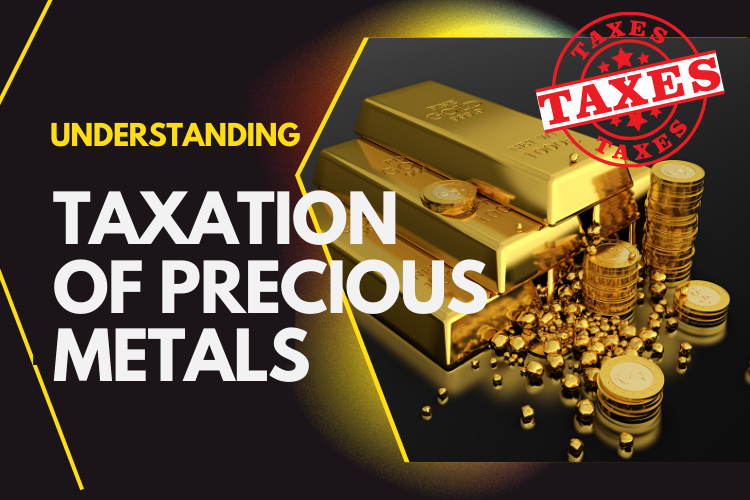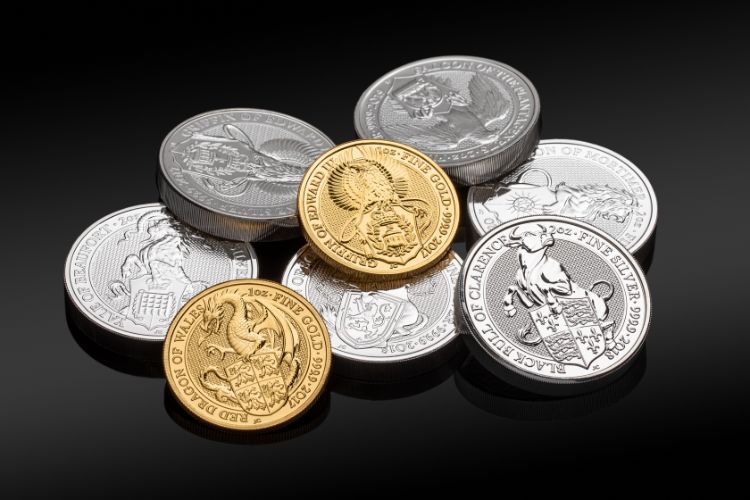
Understanding the Taxation of Precious Metals: A Guide for Investors
Investing in precious metals like gold, silver, platinum, and palladium can be a strategic move to broaden your portfolio and protect you from inflation.
However, navigating the tax implications of buying, holding, and selling these assets can be challenging. This article sheds light on the key tax considerations for precious metal investors in the United States, including the impact of the Net Investment Income Tax (NIIT).
Capital Gains Tax and the NIIT

When you sell precious metals for a profit, the IRS considers the gain a capital gain. Under tax law, precious metals are considered “collectibles.” If you hold on to them for more than a year, you may have to pay a higher long-term capital gains tax rate of up to 28%.
This contrasts with the maximum 20% rate for most other capital assets. Short-term capital gains from the sale of metals held for one year or less are taxed as ordinary income at your marginal tax rate.
In addition to the capital gains tax, investors may be subject to the Net Investment Income Tax (NIIT). For people whose modified adjusted gross income is more than a certain amount ($200,000 for single filers or $250,000 for married couples filing jointly), the NIIT is a 3.8% tax on investment income.
This can include interest, dividends, capital gains, rental and royalty income, and other investment income. If your income exceeds these thresholds, the NIIT could apply to your profits from selling precious metals.
Reporting Sales

Brokers and dealers must submit reports to the IRS regarding specific transactions using Form 1099-B. However, not all sales of precious metals lead to this requirement.
Some sales, like those of American Gold Eagle and Silver Eagle coins, may not be taxed because they are legal tender. It’s essential to keep your records of purchases and sales, as you are responsible for reporting all gains on your tax return, regardless of whether you receive a Form 1099-B.
IRA Investments

Precious metals can also be held in certain Individual Retirement Accounts (IRAs). These “self-directed” IRAs can include gold, silver, platinum, and palladium that meet specific fineness standards.
While gains in an IRA are taxed once they are distributed, it is essential to follow the rules for IRA investments to avoid penalties.
Collectibles vs. Bullion

The IRS makes a distinction between bullion and collectible coins. Bullion coins and bars are worth the amount of metal they contain. Collectibles, on the other hand, may be worth more because they are rare, in good condition, or for some other reason.
This distinction can affect tax treatment, particularly when valuing your investment for tax purposes.
Losses and Deductions

Suppose you sell precious metals at a loss. In that case, the tax treatment depends on whether they are considered personal or investment property.
Losses on personal-use property are generally not deductible. In contrast, losses on investment property can be used to offset other capital gains, including any potential NIIT liability.
Dealer and Trader Considerations

When it comes to taxes, there are different rules for people who deal or trade precious metals. Inventory is typically not subject to capital gains tax but is treated as ordinary income.
Additionally, dealers may be subject to self-employment taxes and other business-related tax considerations
State Taxes

In addition to federal taxes, some states impose sales taxes on the purchase of precious metals. However, numerous states offer exemptions or reduced tax rates for bullion or coins. It’s essential to understand the tax laws in your state to avoid unexpected costs.
Conclusion
Taxing precious metals can be complex, and the regulations are subject to potential revisions. Talking to a tax expert is always a good idea.
They can give you specific advice and keep you up to date on the latest tax laws and rules, such as how the Net Investment Income Tax (NIIT) affects you. By staying informed and organized, you can ensure that your precious metal investments remain golden from a tax perspective.
Remember, tax laws are subject to change, and this article is for informational purposes only. It does not constitute legal, tax, or financial advice. Always consult with a qualified professional for your specific tax situation.
